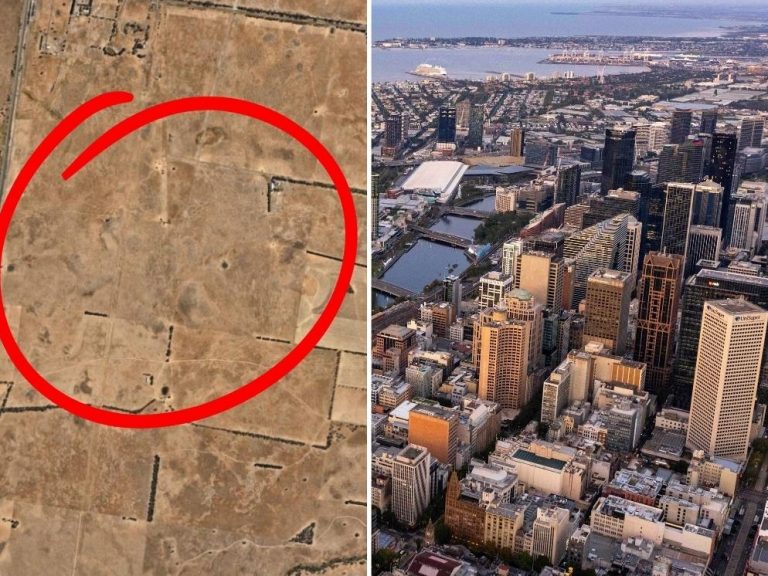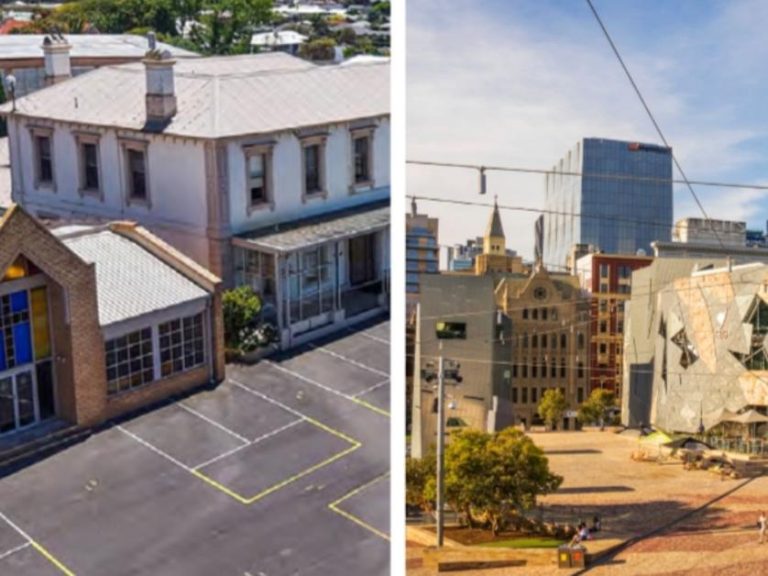Crazy, silly bargains: Australia’s thriving discount stores (and the ones now rejected)
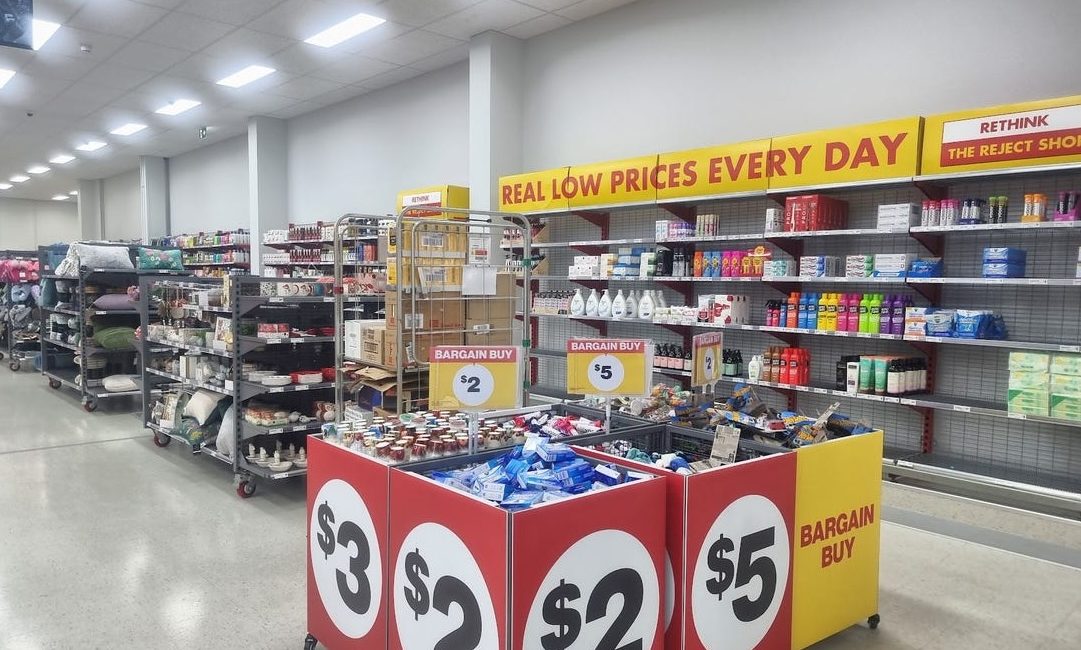
Last month Australia’s largest discount retailer The Reject Shop was tapped for a $259 million takeover bid by Canadian retailer Dollarama.
Pending a forthcoming shareholder vote, the ambitious deal is expected to double the share price and store count of the national discount chain.
Dollarama intends to grow the number of Reject Shop locations by almost 80% in the next decade, setting a target of 700 stores by 2034.
The ambitious takeover bid from a foreign player comes hot on the heels of South African retailer Panda Mart also making its move into the Australian discount market, securing two big box leases in the Melbourne suburbs of Cranbourne and Preston – the latter a former Bunnings superstore.
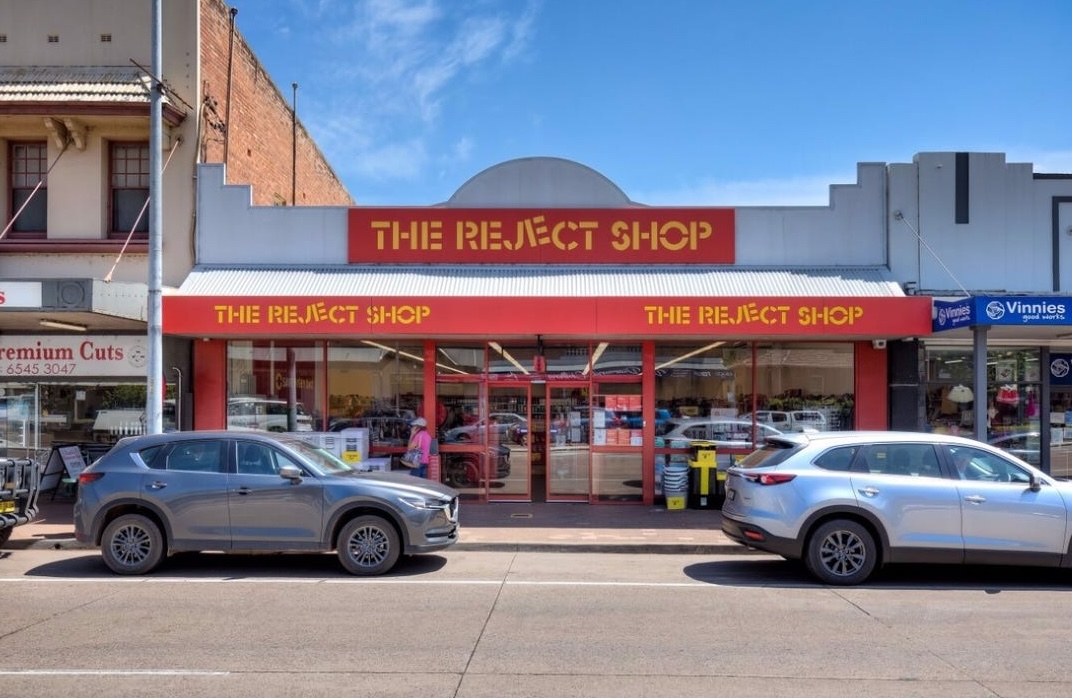
The Reject Shop is Australia’s largest discount retailer with 394 stores, but that number could be set to soar. Picture: realcommercial.com.au
For an industry once reported to be in a state of structural decline, it begs the question: How are these bricks and mortar businesses surviving, thriving even, in an online era dominated by the likes of Amazon and Temu?
Retail expert and Queensland University of Technology professor, Gary Mortimer, said the answer lies in consumer impulsivity.
“Customers don’t necessarily go into these kinds of third tier discounters with the intention of buying anything specific. But when they do wander in, there’s a pile of stuff that’s ultra-cheap which they end up buying on a whim,” Mr Mortimer explained.
He said this differs from the online purchasing model where consumers are actively engaged in the decision-making process.
“You are going online to Temu or Amazon to intentionally find something you’re willing to wait a few days to arrive at your home. With the $2 bargain shop model, you’re seeing something, wandering in and walking out with half-a-dozen items. It’s about immediate gratification.”
According to IBISWorld, discount variety store industry revenue is expected to have dropped at an annualised 2.6% over the five years through 2024-25, to $2.3 billion, however this trend includes an “anticipated” 1.6% uptick in 2024-25.
Mr Mortimer said the cost-of-living crisis is a likely contributor to this boost.
“We often see discount stores become very popular during holiday periods like Christmas, Easter and Halloween. They seem to dominate the market during these times because you can get a whole basket of small gifts for under $50.”
Mr Mortimer believes as long as there is an availability of commercial real estate, we can expect to see further expansion of discount stores.
“It’s certainly quite a diversified sector at the moment with a number of players all vying for their place in the market.”
But who are the current players in the Australian market, and which retailers have fallen by the wayside?
From national household names to state and city-based businesses, we take a look at the discount stores still offering consumers cheap and cheerful bargains, and which are no more.
The Reject Shop
The Reject Shop was founded in 1981 by Ron Hall and John Shuster, who opened their first store in the Melbourne suburb of South Yarra.
Over 40 years later, The Reject Shop is now Australia’s largest discount retailer with 393 stores across the country, having grown from 354 stores at the end of FY20 after the company focused more on expansion.
According to The Reject Shop’s recent half-year results, released in February prior to the announcement of the takeover bid last month, the company said it expected to open seven more stores before the end of the financial year and had a pipeline of 15 new stores beyond FY25.
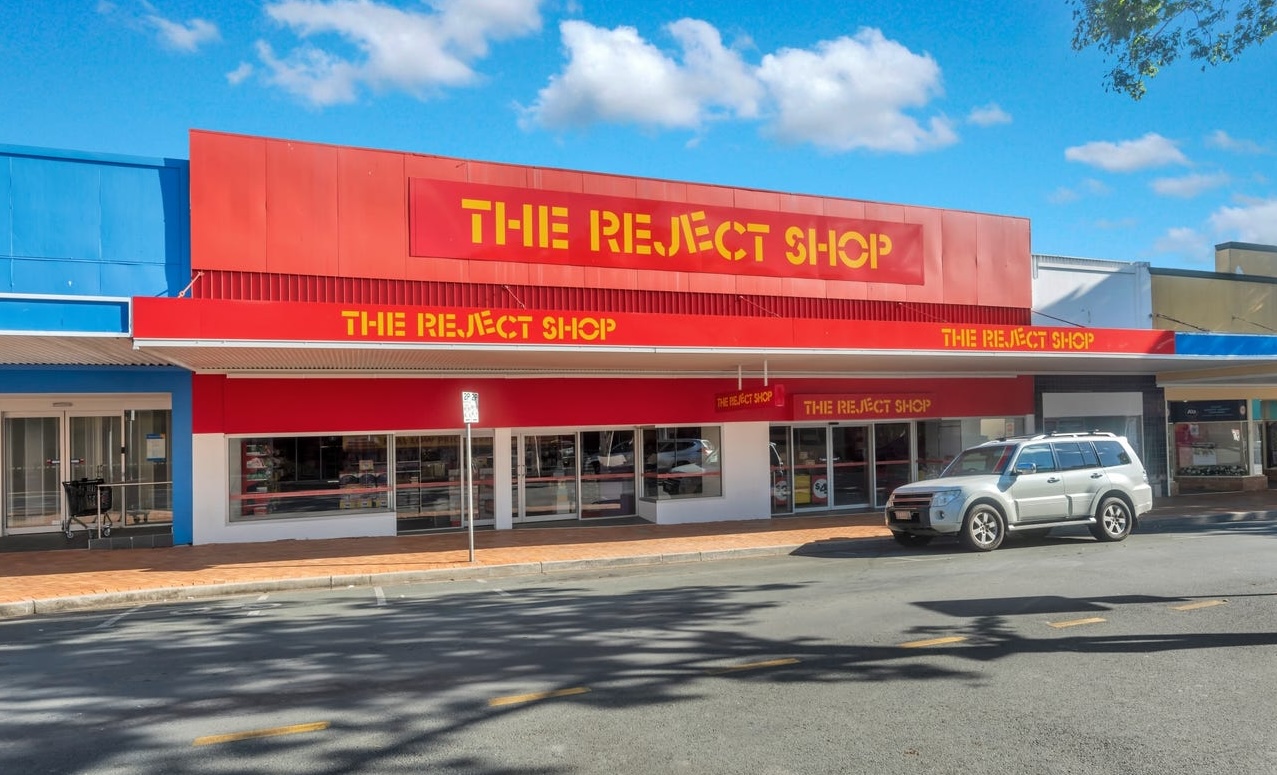
The Reject Shop is set to be acquired by a Canadian retail giant with big expansion plans. Picture: realcommercial.com.au
Clint’s Crazy Bargains
Who could forget those annoyingly catchy Clint’s Crazy Bargains TV adverts of the ’80s and ’90s? (“It’s craaaazy!”) Established in 1978, the bargain behemoth opened its first store in Bankstown in NSW.
The variety chain grew from three stores to well over 100 between 1986 and 2000, eventually growing to 117 stores nationwide. The wholesale arm of the business also became a major supplier to 400 stores around Australia.
After being sold to New Zealand company The Warehouse for $103 million, Clint’s Crazy Bargains stores were rebranded as Yellow Sheds. However, when The Warehouse took a dive, the company was eventually forced to sell off its assets to private equity.
In 2008 the remaining Clint’s stores were sold to a group of Australian investors, Australian Discount Retail, and subsequently renamed Sam’s Warehouse (also now defunct).
Crazy Clark’s
Founded in 1988 in Brisbane, Crazy Clark’s picked up from where Clint’s Crazy Bargains left off and became a household name in Australia. It was known as a one-stop-shop for ‘crazy’ and cheap bargains, selling clothing, cosmetics, toys, homewares, electronics goods, garden ware, confectionery and more.
At its peak, there were over 150 Crazy Clark’s stores across Queensland, New South Wales, Northern Territory and Western Australia. The company also owned and operated a chain store called Go-Lo.
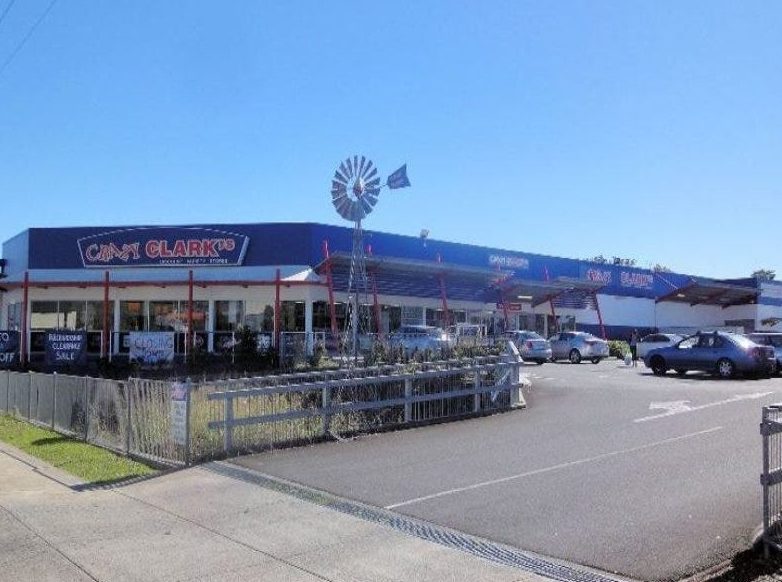
Crazy Clark’s stores are no longer operating. Picture: realcommercial.com.au
Founder Peter Clark and his brother sold the business in 2002 and the company was traded through several owners before going into receivership in 2014. The brothers revived the name in 2020 as a car rental agency, Crazy Clark’s Car Rentals, before later re-opening the very first Crazy Clark’s discount store in the regional town of Rosewood. As of today, it is the sole remaining store in the country.
Dollars and Sense
Dollars and Sense might not have reached the business heights of Clint’s or Crazy Clark’s, but it has managed to outlive both of those companies as a national chain retailer. Founded in Queensland in 1987, Dollars and Sense now operates 21 stores in Queensland, NSW and Northern Territory, flogging everything from home items to pet and party supplies.
Today, the stores can mainly be found servicing regional areas. In November 2024, the company opened its fifth Northern Territory location in the Coolalinga Central shopping centre.
Silly Solly’s
With its ‘nothing over $5’ pricing model, Silly Solly’s has been a Queensland institution since the early 90s. Claiming to be the fastest growing discount retail chain in Australia, the company has enjoyed significant growth over the last five years, opening its first stores in New South Wales and Victoria in 2021 after shifting from a licence agreement into a franchise model in 2023.
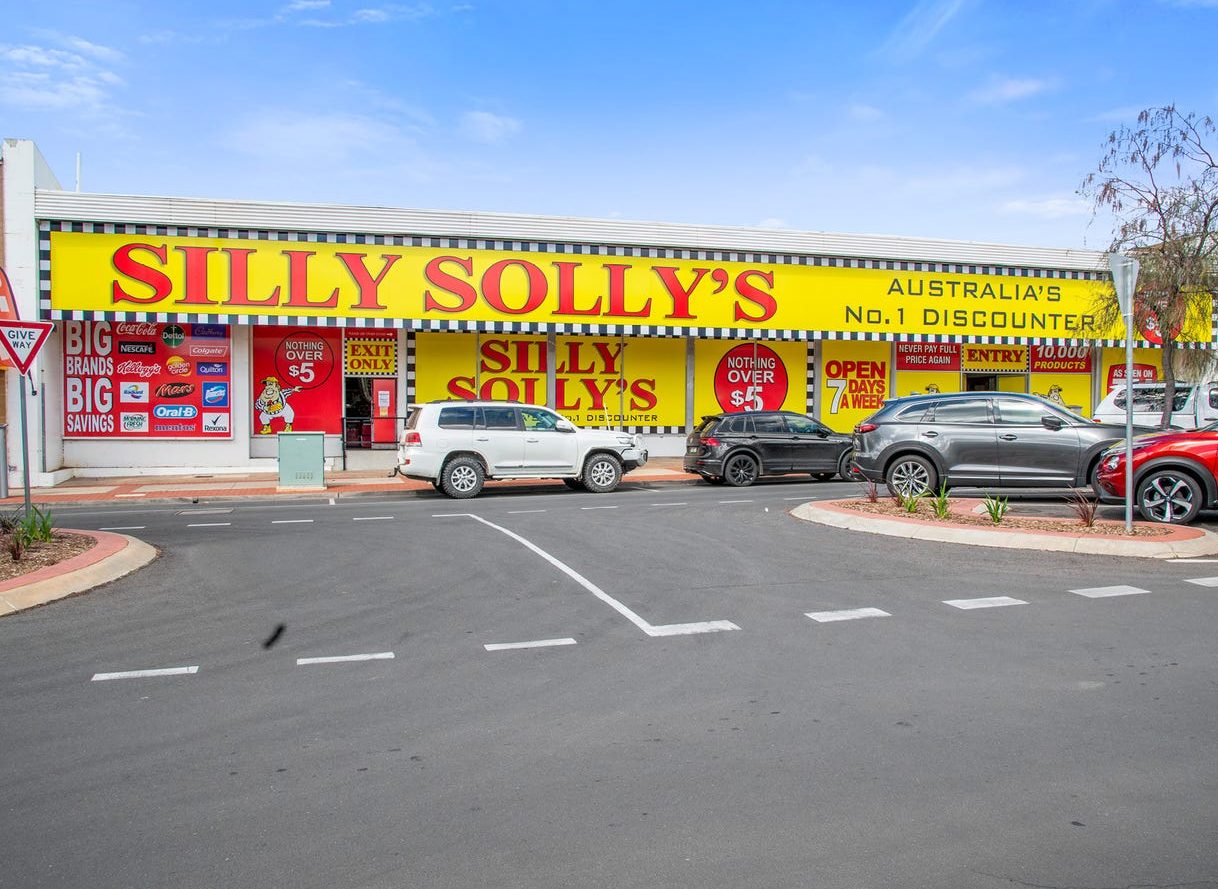
Silly Solly’s stores are still operating. Picture: realcommercial.com.au
Since then, Silly Solly’s has grown to 11 stores in NSW, 3 in Victoria and South Australia, and 27 locations in its home state of Queensland.
“We experimented with a couple of stores and decided there was a need for this,” said media spokesperson, Solly Stanton, of the company’s move to a franchise model in 2023.
“Silly Solly’s has excelled in a bricks-and-mortar retail environment of extreme uncertainty. We have built a trusted reputation amongst our customers. It was a massive challenge, but Silly Solly’s responded to consumer demand for new ranges of products to help ease cost of living pressure with a huge everyday focus on essentials items, at affordable prices.”
Thingz
Thingz is a name perhaps only Perthites will be familiar. It was established in 1979 with the intention of ‘bringing together beautiful gifts and stylish home décor at affordable prices’. Still going strong within the Perth market, the company has 11 locations across the Greater Perth region.
Choice the Discount Store
Choice The Discount Store opened its first location in 1996 with the purchase of an existing Redbank store in Queensland. The chain has grown to 35 locations across Queensland and three in Northern New South Wales. After 30 years of operation, the business continues to open new stores, including its latest in the Queensland suburb of Chinchilla in September 2024.

Choice The Discount Store. Picture: Facebook
Hot Dollar
Remember those random $2 shops from when you were a kid? Cheap, cheerful, and stacked with as many random items as you could think of? That’s Hot Dollar. As of 2025, the NSW-based chain has over 50 retail outlets throughout the state, operating under the names Hot Dollar and Dollar King.
The business claims to differentiate itself from other bargain stores by offering a specialised purchasing team for every store. Its range of products include kitchenware, homeware, home decor, cleaning products, party needs and gift wrapping. The company also operates Fire Deal, an online store delivering goods Australia wide.
Dimmeys
The company that would later become known as Dimmeys first opened as Dimelow & Gaylard’s in Maryborough, Victoria. In 1898, a successful drapery store on Swan Street in Richmond operating since 1853 was sold to Dimelow and Gaylard, who began selling a broad range of high fashion merchandise. Around this time customers began to affectionately call the store ‘Dimmeys’.
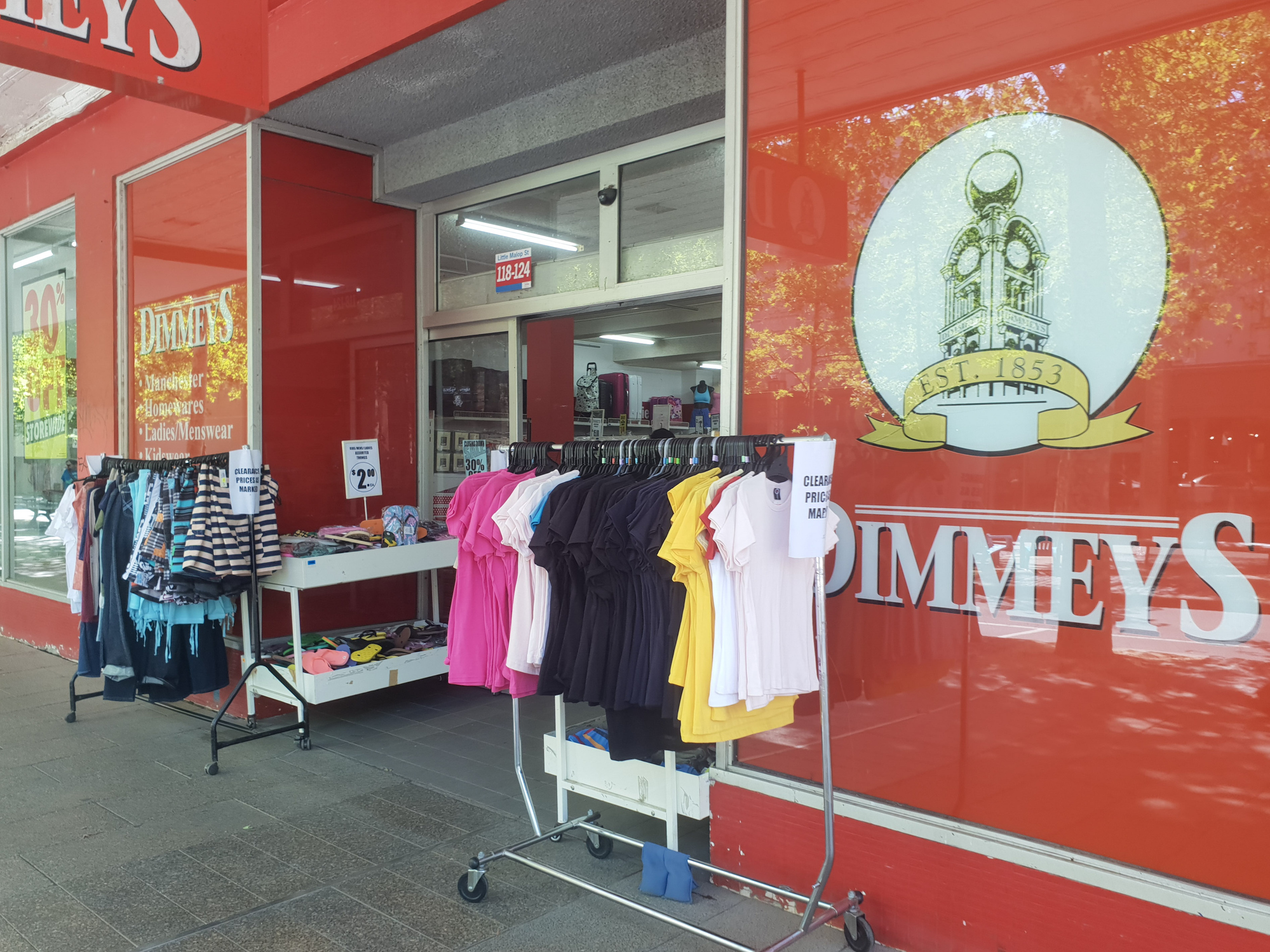
Dimmeys began in Victoria. Picture: Getty
In 1904 the business was taken over by John Jeffery, who officially changed the trading name to ‘Dimmeys Model Stores’. When the depression years hit, Jeffery saw a gap in the market and began selling quality goods at discounted prices. During the post war period, Dimmeys became one of the most prominent discount retailers in Melbourne.
Still going strong in 2025, Dimmeys now operates 18 stores across Victoria, Queensland, NSW and South Australia and claims to be the oldest ongoing retail company in the country. A self-confessed ‘old fashioned, no frills’ organisation, Dimmeys sells national brand and imported apparel, plus manchester, homewares, giftware, footwear and groceries.
Cheap as Chips
Celebrating its 40th year, Cheap as Chips began a modest trade with one store in Morphett Vale, South Australia in 1985. The company has since grown to 50 stores in regional and metropolitan SA, VIC, NSW and QLD. And they continue to expand, with the most recent Cheap as Chips location opening in the Adelaide suburb of Marleston in January.
Red Dot
A discount retail staple of Western Australia since 1992, Red Dot has expanded to 46 stores across the state and employs over 500 staff. The business is known for selling a wide variety of products across storage, party goods, arts & craft, pets, luggage, entertainment, fashion accessories, toys and confectionery.
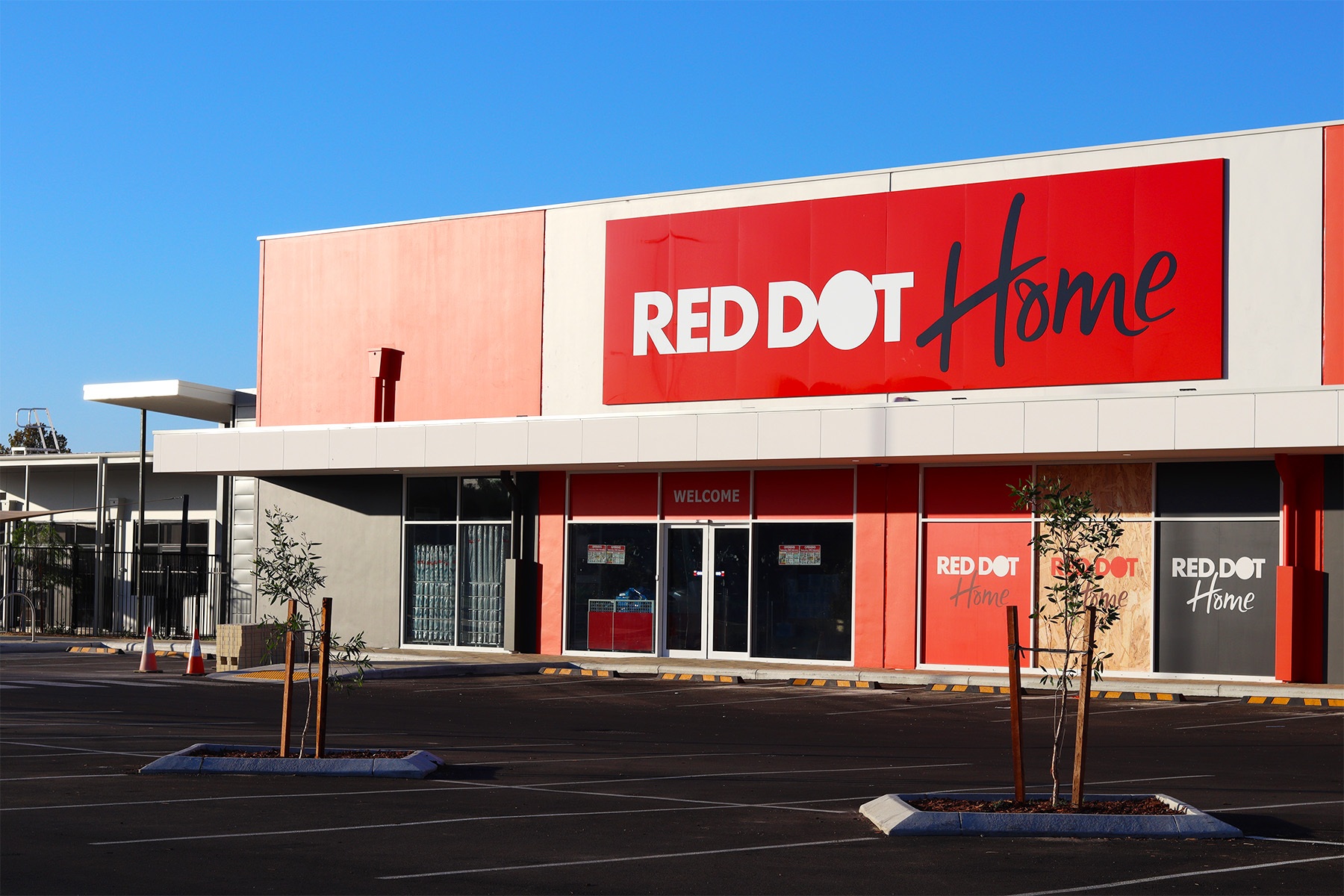
Red Dot stores have operated in WA since 1992. Picture: Red Dot
In 2021, the company launched a new concept store, Red Dot Home, with three 1,000sqm + sites in Midland, Busselton and Ocean Keys selling anything and everything for the home.
Defying the online shopping trend, Red Dot continues to expand, launching three new stores in Belmont Grand, Malaga Grand and Treendale Grand since February.
Chickenfeed
Weird name, but great marketing. Chickenfeed started as a chain of retail outlets in 1990 in Tasmania and was launched by the Sypkes family, who were renowned in the business world. At its peak, the chain operated around 44 locations across Tasmania, Victoria and New South Wales.

Chickenfeed was a Tasmanian discount store. Picture: realcommercial.com.au
Chickenfeed was renowned for clever marketing campaigns with catchy jingles and a chicken mascot named Cheepa, who appeared in many television adverts. Cheepa was originally a live action mascot costume, but was later revamped and reimagined as a digital model.
In 2001 the company was acquired by Australian Discount Retail Group, however the brand was phased out when ADRG went into receivership. There are currently no Chickenfeed stores left in Australia.

